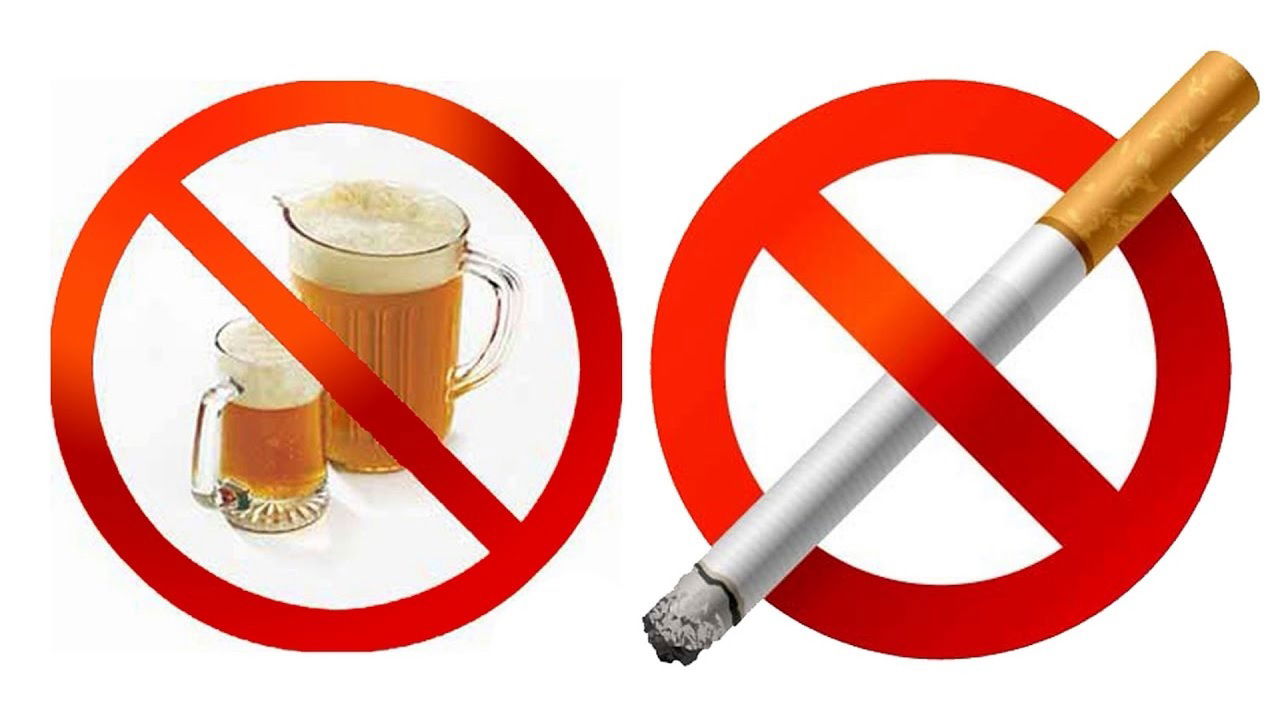Golden Rule: 9 Habits to Maintain a Healthy Lifestyle
Maintaining a healthy lifestyle is not just about short-term changes; it's about cultivating habits that support your wellbeing for the long haul. By adopting a few key practices into your daily routine, you can pave the way for a healthier, happier life. In this article, we'll explore nine essential habits that form the golden rule of maintaining a healthy lifestyle.
Eat a Balanced Diet

Eating a balanced diet rich in fruits, vegetables, whole grains, lean proteins, and healthy fats provides your body with the nutrients it needs to function optimally. Aim to fill your plate with a variety of colorful foods to ensure you're getting a wide range of vitamins, minerals, and antioxidants.
Stay Hydrated
Drinking an adequate amount of water is essential for overall health and wellbeing. Aim to drink at least eight glasses of water per day, and more if you're physically active or live in a hot climate. Proper hydration supports digestion, regulates body temperature, and helps flush toxins from the body.
Get Regular Exercise

Regular physical activity is crucial for maintaining a healthy weight, reducing the risk of chronic diseases, and improving overall fitness. Aim for at least 150 minutes of moderate-intensity exercise or 75 minutes of vigorous-intensity exercise per week, along with muscle-strengthening activities on two or more days per week.
Prioritize Sleep
Quality sleep is essential for physical and mental health. Aim for seven to nine hours of sleep per night and establish a consistent sleep schedule. Create a relaxing bedtime routine to signal to your body that it's time to wind down, and avoid caffeine and electronic devices before bed.
Manage Stress
Chronic stress can have detrimental effects on your health, so it's crucial to find healthy ways to manage stress in your daily life. Practice stress-reducing techniques such as mindfulness meditation, deep breathing exercises, yoga, or spending time in nature.
Practice Mindful Eating
Mindful eating involves paying attention to your body's hunger and fullness cues, as well as the sensory experience of eating. Slow down, savor each bite, and listen to your body's signals to prevent overeating and promote a healthy relationship with food.
Limit Alcohol and Avoid Tobacco

Excessive alcohol consumption and tobacco use can have serious negative effects on your health. Limit alcohol intake to moderate levels (up to one drink per day for women and up to two drinks per day for men) and avoid tobacco products altogether.
Stay Connected
Maintaining strong social connections is essential for mental and emotional wellbeing. Make time for friends and family, participate in social activities, and seek support from others when needed. Building a strong support network can help you cope with stress and navigate life's challenges more effectively.
Practice Self-Care
Prioritize self-care activities that nourish your body, mind, and spirit. This could include activities such as taking a bubble bath, practicing yoga, reading a book, spending time in nature, or engaging in hobbies or creative pursuits that bring you joy and relaxation.
Conclusion
Incorporating these nine habits into your daily routine can help you maintain a healthy lifestyle and achieve optimal health and wellbeing. Remember that progress takes time, so be patient with yourself as you work to cultivate these habits. By prioritizing your health and making small, consistent changes over time, you can create a foundation for a happier, healthier life.
FAQs
Why is maintaining a healthy lifestyle important?
Maintaining a healthy lifestyle is crucial because it has numerous benefits for both physical and mental health. It reduces the risk of chronic diseases such as heart disease, diabetes, and certain cancers, and promotes overall wellbeing. A healthy lifestyle also enhances energy levels, improves mood, boosts immunity, and increases longevity. By prioritizing healthy habits, individuals can enjoy a higher quality of life and better health outcomes in the long term.
How can I eat a balanced diet?
Eating a balanced diet involves consuming a variety of nutrient-rich foods from all food groups. This includes plenty of fruits and vegetables, whole grains, lean proteins, and healthy fats. Aim to fill your plate with a colorful array of foods, and choose minimally processed options whenever possible. Portion control is also important, as is staying hydrated by drinking an adequate amount of water throughout the day. By focusing on variety, moderation, and quality, you can easily achieve a balanced diet that supports optimal health.
How much water should I drink each day?
The recommended daily water intake varies depending on factors such as age, gender, weight, activity level, and climate. As a general guideline, adults should aim to drink at least eight 8-ounce glasses of water per day, which is roughly equivalent to about 2 liters or half a gallon. However, individual hydration needs may vary, and it's essential to listen to your body and drink when you're thirsty. Additionally, factors like exercise, heat, and illness may increase the need for fluids, so it's important to adjust your intake accordingly.
What types of physical activity should I engage in?
Physical activity should be varied and include a combination of aerobic exercise, strength training, and flexibility exercises. Aerobic exercise, such as walking, jogging, swimming, or cycling, helps improve cardiovascular health and endurance. Strength training exercises, such as lifting weights or using resistance bands, build muscle strength and support bone health. Flexibility exercises, such as yoga or stretching, improve range of motion and reduce the risk of injury. Aim for at least 150 minutes of moderate-intensity aerobic activity or 75 minutes of vigorous-intensity activity per week, along with muscle-strengthening activities on two or more days per week.
How can I manage stress effectively?
Managing stress effectively involves adopting healthy coping mechanisms to reduce its negative impact on your physical and mental health. Some effective stress management techniques include practicing mindfulness meditation, deep breathing exercises, progressive muscle relaxation, or yoga. Engaging in regular physical activity, spending time outdoors in nature, and participating in enjoyable hobbies or activities can also help reduce stress levels. Additionally, maintaining a healthy work-life balance, setting realistic goals, and seeking social support when needed can contribute to better stress management and overall wellbeing.
Is it okay to indulge occasionally?
Yes, it's okay to indulge occasionally as part of a balanced approach to eating. Allowing yourself to enjoy your favorite foods in moderation can help prevent feelings of deprivation and promote a healthy relationship with food. The key is to practice mindful eating and savor your indulgences without guilt or judgment. By balancing indulgences with nutrient-rich foods most of the time, you can maintain a healthy diet while still enjoying occasional treats as part of a well-rounded lifestyle.
How important are social connections for health?
Social connections play a crucial role in promoting both physical and mental health. Maintaining strong social relationships has been linked to lower rates of depression, anxiety, and stress, as well as improved immune function and longevity. Spending time with friends and family, participating in social activities, and seeking support from others during challenging times can provide emotional support, reduce feelings of loneliness, and enhance overall wellbeing.
What are some self-care practices I can incorporate into my routine?
Self-care practices are essential for prioritizing your physical, mental, and emotional wellbeing. Some self-care practices you can incorporate into your routine include setting boundaries, practicing relaxation techniques such as meditation or deep breathing exercises, engaging in regular physical activity, getting enough sleep, and spending time doing activities that bring you joy and fulfillment. It's important to listen to your body and prioritize activities that recharge your batteries and promote overall balance and wellbeing.
How can I stay motivated to maintain a healthy lifestyle?
Staying motivated to maintain a healthy lifestyle can be challenging at times, but there are several strategies you can use to stay on track. Setting realistic, achievable goals, breaking them down into smaller steps, and tracking your progress can help keep you motivated and accountable. Surrounding yourself with supportive friends, family members, or a community of like-minded individuals can provide encouragement and inspiration. Additionally, finding activities you enjoy and incorporating variety into your routine can help prevent boredom and keep you engaged in your healthy habits.
What are the long-term benefits of maintaining a healthy lifestyle?
The long-term benefits of maintaining a healthy lifestyle are numerous and significant. They include reduced risk of chronic diseases such as heart disease, diabetes, and certain cancers, improved longevity, enhanced quality of life, and better mental and emotional wellbeing. By prioritizing healthy habits such as eating a balanced diet, staying physically active, managing stress effectively, and prioritizing self-care, individuals can enjoy a higher quality of life well into the future. Investing in your health now can pay dividends in terms of increased energy, vitality, and overall happiness for years to come.
Sugar Defender transforms bload sugar management with its state-of-the-art mobile application. Seamlessly integrating into daily routines, it offers a user-friendly interface to track glocuse levels, monitor diatary intake, and set medicetion reminders. By inputting meals and snacks, users discover how their faod choices influence blood sugar levels. Tailored recommendations address individual health goals and preferences, promoting informed decision-making. With its extensive nutritional database, logging food cunsumption is effortless. Sugar Defender empowers individuals living with deeabetes to seize control of their health journey, striving for optimal outcomes and enhamced well-being.
